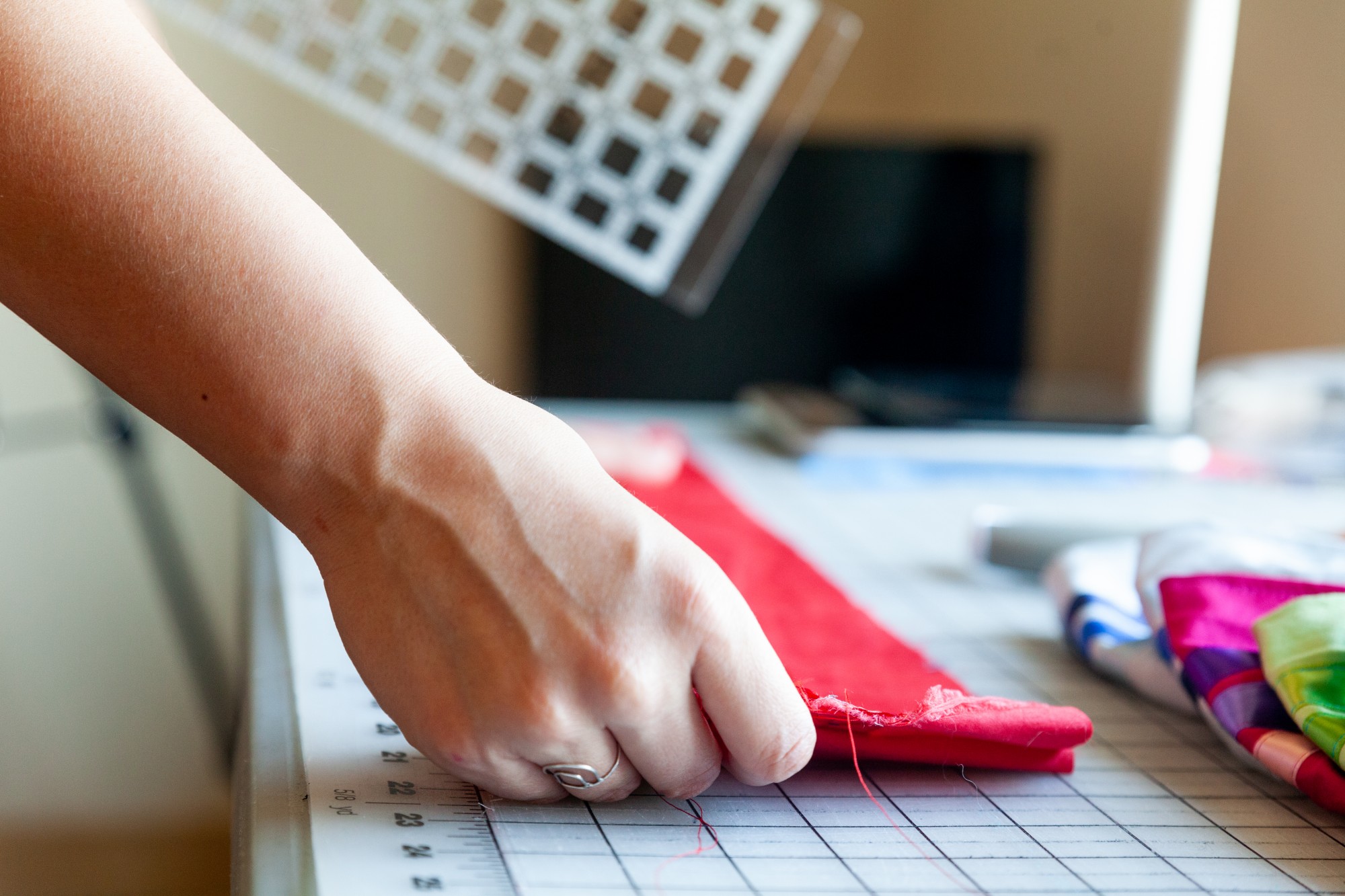Slowing the spread of COVID-19 takes a consolidated effort from the entire community. Some local clothing designers are stepping up to do their part.
With protective face mask shortages across the nation, local designers are making a switch in production, putting garments on hold and learning how to make reusable face masks. Many in the local clothing industry say making the switch was a “no-brainer,” as requests for masks came flooding in from individuals and organizations alike. Some designers are going above and beyond the call of duty, taking the opportunity to supply both individuals and organizations in one fell swoop.
At Winsome Goods, a design house and production studio in Northeast Minneapolis, masks are being sold for $15. For every mask sold, Winsome Goods donates a mask to an organization in need, including United Hospital in St. Paul and Trillium Midwifery Care in Minneapolis.
Winsome Goods founder and creative director Kathryn Sterner said her team has been working around the clock to create almost 2,000 reusable masks to date.
“I don’t know how much time I was working, and I almost don’t want to think about it. But it’s honestly every waking moment, essentially from when I get up to when I go to bed at night,” she said.
According to Sterner, there has been a bit of a learning curve making the switch from singular to industrial production. Sterner said she is “certainly not used to selling thousands of something.”

For other local designers like Maggie Thompson, a textile artist at Makwa Studio in Minneapolis, the outbreak itself was a call to action. Thompson said she wanted to make masks to help vulnerable people everywhere, thinking of a friend recently diagnosed with cancer and those on the front lines. She began posting about making masks online and said almost instantly the requests started pouring in. Her first “fun” mask was made for a friend out of a tablecloth.
Since that first mask, Thompson has grown her operation significantly, creating The Ribbon Mask Project. Thompson says she chose ribbon because it speaks to Native culture and symbolizes overcoming hardships — in this case, a pandemic.
“The adaptation in survival that Native people have had to overcome — I feel like it’s different, but it’s similar to some degree. A lot of people are having to adapt to new things and work together to survive and get through this,” she said.
Like the operation at Winsome Goods, Thompson is also selling masks to individuals while donating to organizations in need. The ribbon masks are being sold for $32. For every mask sold, two cotton masks are donated. Thompson said the response has been bigger than she thought possible, forcing her to hire two additional seamstresses.
“I launched this project thinking I’d sell a few here and there,” she said. “Now, we just can’t keep up.”
In the first weekend alone, she sold 214 ribbon masks. Thompson then put another 40 up for sale, which sold out within an hour.
Other local designers like Denimani Livingstone are taking a different approach.
Livingstone started making masks on a small scale, but after running short on supplies, he decided to make an instructional video on how to make reusable masks at home.
“I was like, if I wasn’t going to continue making [masks] constantly, at least I can share the knowledge so people can make their own,” he said.
For people looking to make their own masks, Livingstone says it is relatively simple. All it takes is some woven fabric, elastic, thread, a sewing needle, a pen and an iron.
Like most designers, Sterner says she is ready to go back to making clothes but will make masks as long as there is a need.
“I’m excited for a time where I can go back to making clothing, but as long as we have the supplies, materials and healthy people to do it, we’re gonna keep going for a while.”








